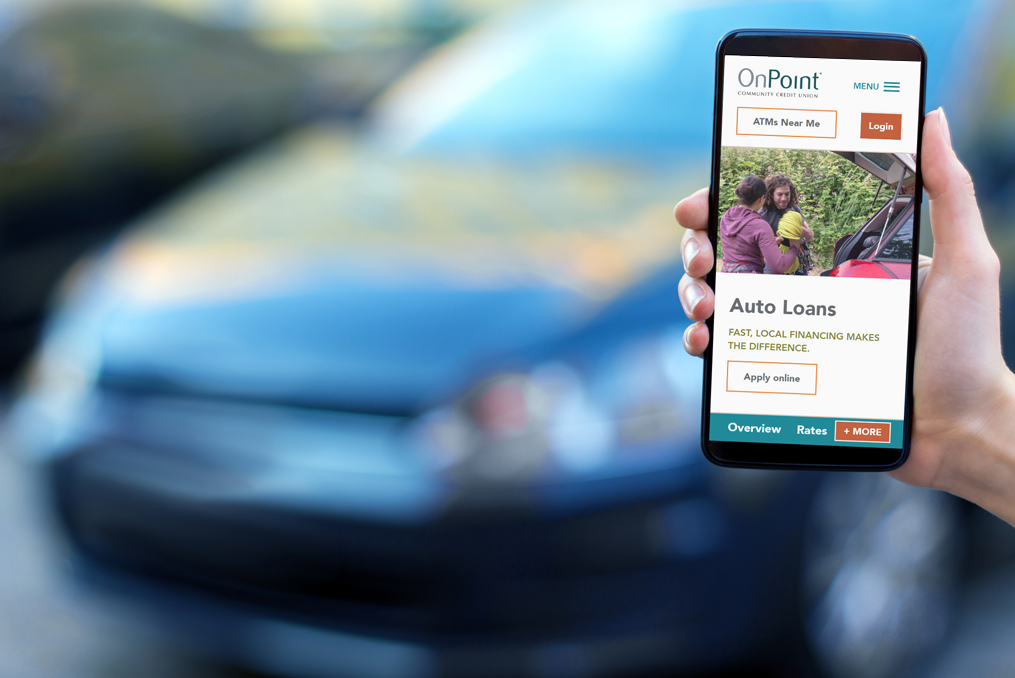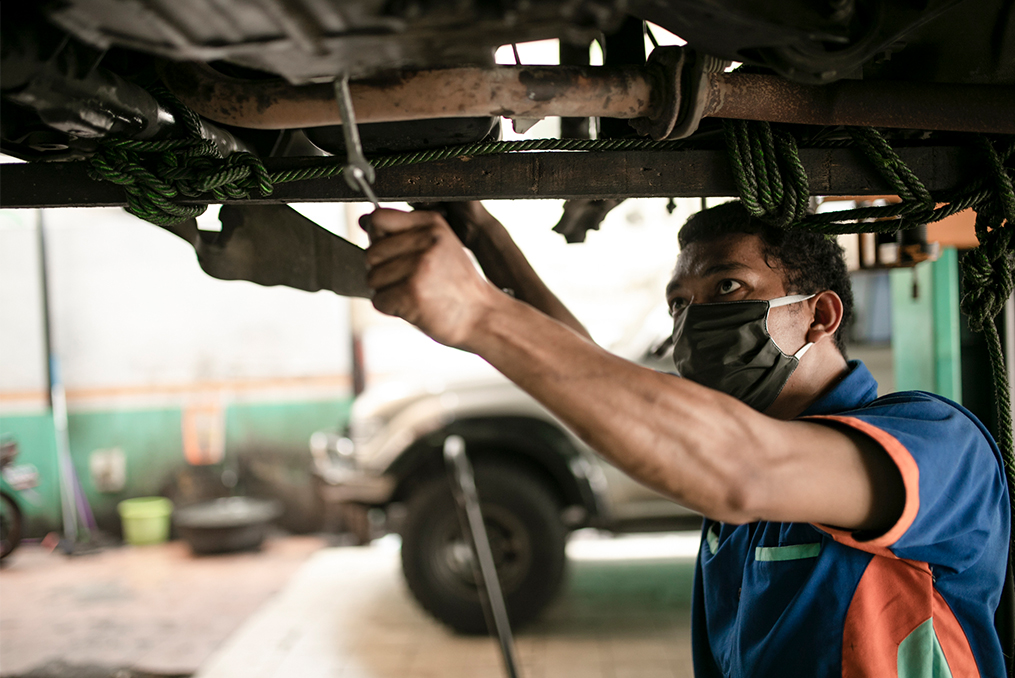While purchasing a new car can be exciting, they often lose value once you leave the dealership lot. However, buying a used vehicle is a great way to save money and could help lower your monthly bills during times of economic uncertainty. When you buy a used or “new to you” vehicle, it is possible to get a great deal, find a car you love and minimize upfront financial costs. Going through the buying process can be overwhelming, but armed with the right knowledge, you can make a decision that’s best for your situation.
Follow these steps to navigate your next used car purchase:
Determine your price range
Before you start looking at vehicles, determine your acceptable price range. Make this your first step before shopping, to avoid buying a vehicle that may not fit into your budget. As a general rule, budget 10-50% of your pre-tax income to your monthly vehicle expenses. Most people spend between 20-35% of income on their vehicle. How much you spend will depend on your budget, other debt obligations and monthly bills. Consider your budget and use the calculator below to estimate your monthly payments:
If you’re buying from a private seller, you’ll likely either pay in cash—or a loan. If you need financing, you’ll want to get pre-approved for an auto loan before starting your search. If you’re buying from a dealership, find one that works directly with your credit union.
At this stage, if you don’t have insurance yet, get in touch with a provider before you finalize a purchase. You should also check in with your current vehicle insurance provider. Your policy may extend coverage to a newly purchased car, while others may require you to formally request to carry your liability insurance for a new purchase.
Learn how to spot red flags
When you buy a used vehicle, you take on some risk that it may have pre-existing mechanical problems or be more prone to short-term issues. Likewise, purchasing from a private seller means there are no reviews available to determine their trustworthiness. Strongly consider having a mechanic that you trust do a full vehicle inspection before purchasing a used vehicle from a private seller.
In addition to the risk of purchasing a lemon, check out our guide on how to spot car sale scams and protect yourself when purchasing from a private seller.
Make a list of specific brands and models
Start your research by making a list of brands and models that you prefer. Use Kelley Blue Book (KBB) to estimate the market value of each one. Eliminate models that are outside of your budget and focus on ones that you can afford. Your research will also help you determine if cars that you find should be in your price range. Some used vehicles may have a list price that reflects an overvaluation. This could be due to the vehicle having a reconstructed title from a previous accident or other major mechanical failures that reduce the vehicle’s resale and market value. If the market value or seller’s ask price for a vehicle exceeds the official value of the vehicle, then you may not be able to get a loan that covers the full cost. By determining fair market value during your research phase, you can avoid any potential surprises when you’re ready to make your auto purchase.
Check out local listings
Searching online for dealership and private seller listings will give you the information you need to purchase a used car with confidence.
Let’s say you’re interested in buying a Toyota Corolla or a Honda Civic. See who is selling these models in your area and compare their prices to KBB. Private sellers usually offer the lowest prices, but come with some additional risk. Dealers may offer certified pre-owned cars with long-term warranties, but you’ll typically pay a premium for this coverage and peace of mind.

Narrow your list and get vehicle history reports
Once you’ve narrowed your list down to a few specific vehicles, grab their history reports to learn important information about each, like whether or not the car has a salvage title. Reputable dealerships will offer these reports for free. For private sales, you’ll need the car’s vehicle identification number to find the report online.
Go for a test drive
Always test drive a vehicle before making a purchase decision. It’s a good idea to ask the seller for proof of insurance before you drive it, so you know you’re covered.
When driving the car, turn the radio off so you can listen for any unusual noises. Adjust the steering wheel and seat to see if you can drive comfortably. Turn the heating and air conditioning on and off to make sure they work.
After you drive the car, pop the hood and look for steam, spilled oil, broken cables and other obvious signs of disrepair. And always “kick the tires” and check the tread for excessive wear.
Get the vehicle inspected
Vehicle inspections aren’t required, but they can save you money in the long run. A local mechanic will typically charge between $100 and $200 to put the car up on a hydraulic lift to inspect for leaks and other damage. The buyer typically pays for this inspection—even if they don’t ultimately purchase the vehicle. Only take this step if you’re very interested in the vehicle and want to ensure that there are no unexpected issues. To avoid any potential conflicts of interest have your mechanic perform the inspection rather than relying on a recommendation from the seller.

Negotiate with the seller
Private vehicle sales are final. Unless you’re buying from a dealer that offers a grace period, you won’t be able to return the car if something goes wrong. Dealers may offer warranties that cover unforeseen issues, but you need to get these agreements in writing before completing your purchase.
The pre-purchase inspection, vehicle history report, and KBB value will give you most of the information you need to negotiate the final sale price. Most sellers will expect you to offer a lower price, so start low and try to end up somewhere in the middle. Another good negotiating tactic is to withhold some info until you nail down the vehicle price. Some dealerships will have you focus on the monthly payment rather than the vehicle’s price—you want to determine the vehicle’s cost based on your research and then introduce any down payments or trade-ins. Making incremental negotiations will take longer, but may offer you an opportunity for better overall value in your purchase.
Transfer the title and registration
If you purchased your vehicle from a dealer, they will handle the paperwork. Otherwise, Oregon residents have 30 days to transfer ownership of the vehicle; for Washington residents, it’s 15 days. Do this as soon as possible to avoid penalty fees.
Headed to a dealership? Learn more about how to get flexible, local financing for your next used vehicle purchase.






